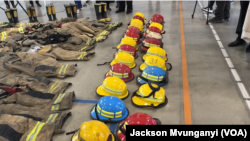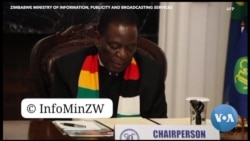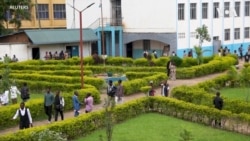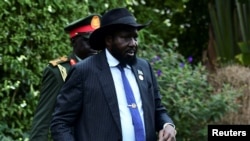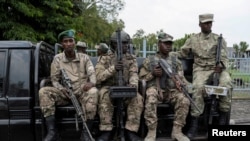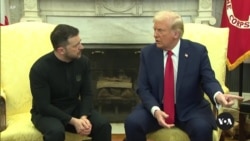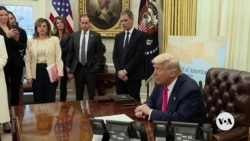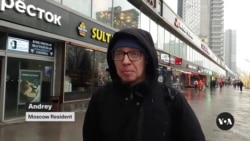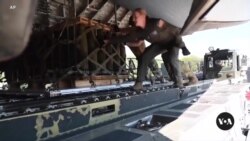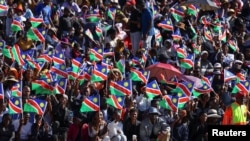Conflict
Chad Peace Talks Resume

On Saturday, Colonel Adoum Yacoub, a spokesman for 19 groups that had pulled out, told AFP their concerns had been addressed.
"We had discussions with the mediator with whom we shared our grievances in writing and we received all the answers," he said.
Brahim Hissein, a spokesman for Chad's main armed opposition movement, the Front for Change and Concord in Chad (FACT), said they had spoken to the mediator on Thursday and decided to "give the talks a new chance."
Around 50 groups have been negotiating for more than four months in Doha, with the aim of holding an inclusive national dialogue to pave the way for elections.
But a host of them withdrew from the talks on July 16, accusing the government of seeking to destabilize peace efforts.
On Thursday, the Qatari mediator handed a draft peace agreement to the rebel groups and the Chadian government.
Mahamat Mahdi Ali, the leader of FACT, told AFP: "There are two or three points to discuss... but it's a good start."
Government spokesman Abderaman Koulamallah praised "the foresight of (his) brothers".
The rebel groups who withdrew on July 16 did so less than 24 hours after Deby's administration announced that a national peace dialogue ahead of elections would start on August 20.
The rebels said the new date had been set without any consultation, describing it as an attempt to "exclude" many of the armed groups and their political allies from the dialogue.
See all News Updates of the Day
Africa News Tonight: Hunger, violence stalk Goma residents, US considers AFRICOM changes, Cyclone batters southern Africa
Africa News Tonight: Angola advances DRC talks, Tunisian opposition leaders remain jailed, US firefighters team up with Liberian colleagues
Southern Africa bloc to begin phased withdrawal of troops from DRC
The Southern African Development Community or SADC said Thursday that a summit of regional heads of state had terminated the mandate of its troop deployment in the eastern part of the Democratic Republic of Congo and decided on a "phased withdrawal." SADC lost more than a dozen soldiers in conflict in January. The 16-nation bloc took the decision at a virtual summit on the conflict in the area that has seen some three decades of unrest and claimed millions of lives. "Summit terminated the Mandate of SAMIDRC and directed the commencement of a phased withdrawal of SAMIDRC troops from the DRC," the Southern African bloc said in a communique after the summit. The SADC Mission in the Democratic Republic of Congo, SAMIDRC, — made up of soldiers from Malawi, Tanzania and South Africa — was sent to the region in December 2023 to help the government of the DRC, also a SADC member, restore peace and security. SADC extended its mandate late last year.
Africa News Tonight: DRC, US in talks on trade and security, concerns of civil war risk in South Sudan, tariff talk rattles stock markets
University students resume studies in Bukavu as DRC crisis deepens
University students in Bukavu, in the east of the Democratic Republic of Congo, are gradually returning to class for the first time since M23 rebels took their city last month. Toto Mufungizi, a student, said while they were home “during these months, we have endured many strange things.” “We stayed at home for at least one month and three weeks. We were confined due to this security situation. Even today, there is no serenity, we cannot move around safely," he told Reuters. The M23 rebel group captured Bukavu, South Kivu's capital, in mid-February, forcing a weeks-long suspension of academic activities. The Official University of Bukavu, UOB, and other institutions have now reopened, but security concerns persist. "We are afraid because we heard rumors that in Goma, students were kidnapped. Here, we are also afraid," third-year student Patient Kaliwe said. Some information for this report was provided by Reuters.
Africa News Tonight: Expert calls for dialogue in DRC conflict, Uganda sends troops to Juba, top US, Ukrainian diplomats talk in Jeddah
Africa News Tonight: Exploring the roots of DRC's conflict, Sudan’s displaced face hunger, Morocco's traditions shape Ramadan observances
US-Ukraine to hold talks in Saudi Arabia on how to end war with Russia
Even as U.S.-led peace negotiations to end Russia’s war in Ukraine recently faced setbacks, talks between Washington and Kyiv are set to take place this week in Saudi Arabia. VOA’s Veronica Balderas Iglesias has the details.
US hostage envoy calls Hamas meeting ‘helpful’
A Trump administration hostage negotiator called his recent meetings with representatives of U.S.-designated terror group Hamas “helpful.” Discussions focused on the release of an American-Israeli hostage held by Hamas. This, as Israel says it plans to deploy a delegation this week to discuss ceasefire talks. VOA’s Arash Arabasadi has the story.
Africa News Tonight: Arab nations plan Gaza’s future, Afrikaner groups accused of treason, Sudan health workers struggle to provide care
Russia waits for Trump's next move after clash with Zelenskyy
Russians are carefully watching U.S. President Donald Trump's push for an end to the war in Ukraine after his heated encounter last week with Ukrainian leader Volodymyr Zelenskyy. Elizabeth Cherneff narrates this report from Moscow.
European leaders question the halt in US military aid to Ukraine
U.S. President Donald Trump ordered a "pause" Monday to military aid shipments to Ukraine with immediate effect, which his administration said was aimed at forcing all sides to peace talks. As Henry Ridgwell reports from London, European leaders have said it is vital to continue weapons shipments to Kyiv — but there are doubts over how long Ukraine can keep on fighting.






